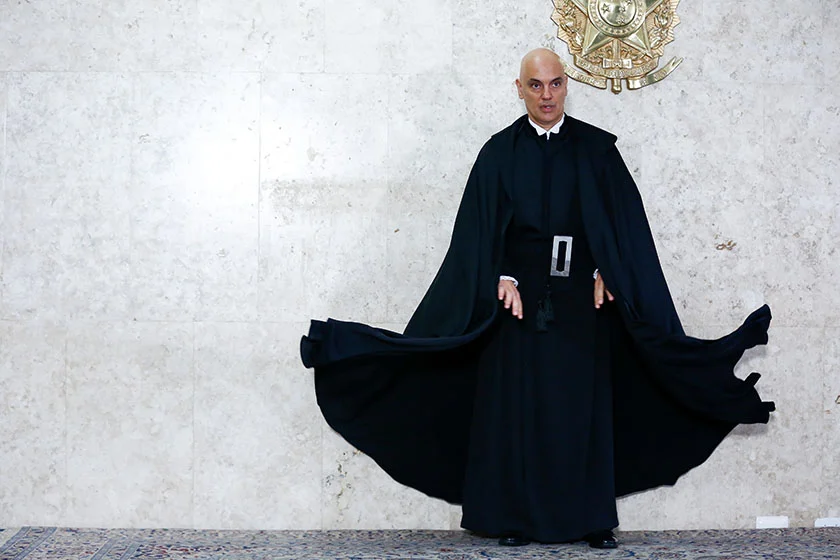(Opinion) Elon Musk, who heads the platform X, formerly Twitter, recently criticized Alexandre de Moraes, a controversial Brazilian Supreme Court Justice.
In an April interview with Fox News, he stressed the critical role of the next elections.
He hinted at Moraes’s involvement in political matters, including the release and political support of Luiz Inácio Lula da Silva.
On April 8, 2024, Musk accused Moraes of influencing the release of Lula from prison and swaying election outcomes.
He implied that Lula won’t confront Moraes due to these interventions.
Musk ramped up his critique on social media, calling Moraes a “dictator” for downplaying Lula’s actions and reversing his prison sentence. He demanded accountability for Moraes’s “crimes.”
He also challenged the Brazilian Congress’s passivity towards Moraes’s dominance, advocating for his ouster for not being elected.

Despite substantial investment, Brazil’s justice system is criticized for lacking impartiality.
It ranks 138th globally in the World Justice Project’s Rule of Law Index 2021, trailing behind all but Venezuela.
Musk Challenges Brazil to Confront Its Flawed Judiciary After Years of Passivity
The clash between Musk and Moraes spotlights broader issues of free speech in Brazil, underscored by journalist Michael Shellenberger’s critique of Moraes’s repressive measures against platform guidelines.
Moraes’s ordered a probe into Musk for potential obstruction of justice and involvement in digital militias, probing the impact of Musk’s comments on Brazilian democracy.
Many argue that Moraes employs a strategic approach of responding to his detractors with an array of legal accusations, creating a complex cover that allows him to effectively protect himself.
And the question arises: who will finally initiate an investigation to thoroughly examine Moraes’ influence on Brazil’s democracy?
Survey reveals 47% of Brazilians see judicial Overreach
An AtlasIntel survey released on February 9, 2024, highlights a split in Brazilian opinions on the judiciary’s role.
Nearly 47.3% of respondents label the judiciary’s control as a “judicial dictatorship,” expressing concerns over its wide-reaching influence.
On the other hand, only 20.9% see the judiciary fulfilling its expected role properly.
Furthermore, 16.7% criticize some judges for overstepping their boundaries without labeling it a dictatorship. About 15.2% are still undecided on this matter.

